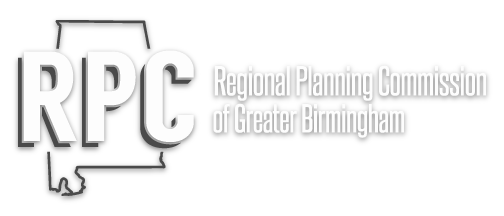Congestion Management Process
Traffic congestion is an everyday fact of life, and it’s getting worse every day. Federal rules require that metropolitan planning organizations located in Transportation Management Areas (TMAs) develop and implement a Congestion Management Process (CMP) as part of the metropolitan transportation planning process. The TMA is defined as an urbanized area with a population over 200,000 (as determined by the latest decennial census).
The CMP offers tools and methods for tracking transportation-system performance. It also serves as a planning tool to help manage traffic congestion and offers a set of multi-modal solutions for addressing the growing problem of traffic congestion in our region. Primarily, the CMP is a way to:
Monitor, measure and diagnose the causes of congestion on a region’s multi-modal transportation systems;
Evaluate and recommend alternative strategies to manage or improve regional congestion; and
Evaluate the performance of strategies put in practice to manage or improve congestion.
The Congestion Management Process is supported by the Congestion Management Committee, a subcommittee of the Transportation Technical Committee.
Our next Congestion Management Committee meeting is scheduled for Wednesday, August 28th - 10:00am. An invitation was emailed to the Committee members. The meeting will be recorded and posted below the following week.
Congestion Management Committee meeting presentations and Congestion Management Updates:
Congestion Management Committee Agenda - August 2024
Congestion Management Committee Agenda and Presentation - November 2023
Year 2022 Worst Bottlenecks with Comparison to 2018 - Interstate - AM and PM Peaks
Covid-19 Effects on Traffic and Transportation - October 2023
Congestion Management Committee Agenda and Presentation - March 2021
Congestion Management Committee - August 2019
Sain_Congestion-Mangement-Committee-Presentation_I-20-59-closure_traffic-ops-analysis
The following are documents related to the Congestion Management Process:
APPLE PROGRAM FEASIBILITY STUDIES
The RPCGB administers the Advanced Planning, Programming, and Logical Engineering (APPLE) Program that provides technical assistance to local governments and project sponsors in determining project feasibility specific for both non-motorized and multimodal travel corridors and is designed to educate local governments about the project development process, assist them in their decision-making process, and provide resources to help develop and advance transportation projects.
The following APPLE studies have been conducted since 2019 to address increased congestion and/or propose recommendations for traffic operational improvements:
Vestavia Hills Traffic Operations Study (June 2019)
US-11 at SR-174 / CR- 9 Intersection Study – Springville (September 2019)
State Route 25 Relocation Study – Calera (September 2019)
Lakeshore Parkway Extension Study for ALDOT (April 2020)
Overton Road Corridor Study – Mountain Brook and Vestavia Hills (June 2020)
SR-70 / West College Street Bicycle, Pedestrian and Intersections Improvements Study – Shelby County / Columbiana (September 2021)
US-280 Traffic Operations and Access Management Study – Chelsea (September 2022)
US-411 Intersection Study – Moody (November 2022)
US-31 Pedestrian Improvements, Access Management and Operations Study – Homewood - September 2023
Fultondale-Gardendale New Road Study – Jefferson County - January 2023
US-78 Rex Lake Road to Ashville Highway/ SR-119 Traffic Operations Study – Leeds
(in progress)
Kelly Creek Road Interchange Study - Moody - (in progress)
Pedestrian Improvements and Traffic Operations Study - Morris - (in progress)
To download a copy of the studies, visit www.rpcgb.org/transportation-project-feasibility-studies-apple.
Assisting ALDOT with their Regional Traffic Operations Program (RTOP)
The RPCGB is assisting ALDOT with implementing a new five-year traffic signal program called the Regional Traffic Operations Program (RTOP) to modernize and improve traffic signals along major corridors throughout the state. The goal of the program is to improve traffic flow, safety and travel time reliability through active management strategies.
In the Birmingham region, multiple consultant firms were awarded two-year contracts to actively manage, maintain and assist ALDOT with the operation of traffic signals and their associated Intelligent Transportation Systems (ITS) devices on the following corridors:
US-31 from Calera to Gardendale (98 signals)
US- 78 from Graysville to Leeds (82 signals)
US-280 from Birmingham to Hoover (30 signals)
US-11 from Bessemer to Trussville (117 signals)

